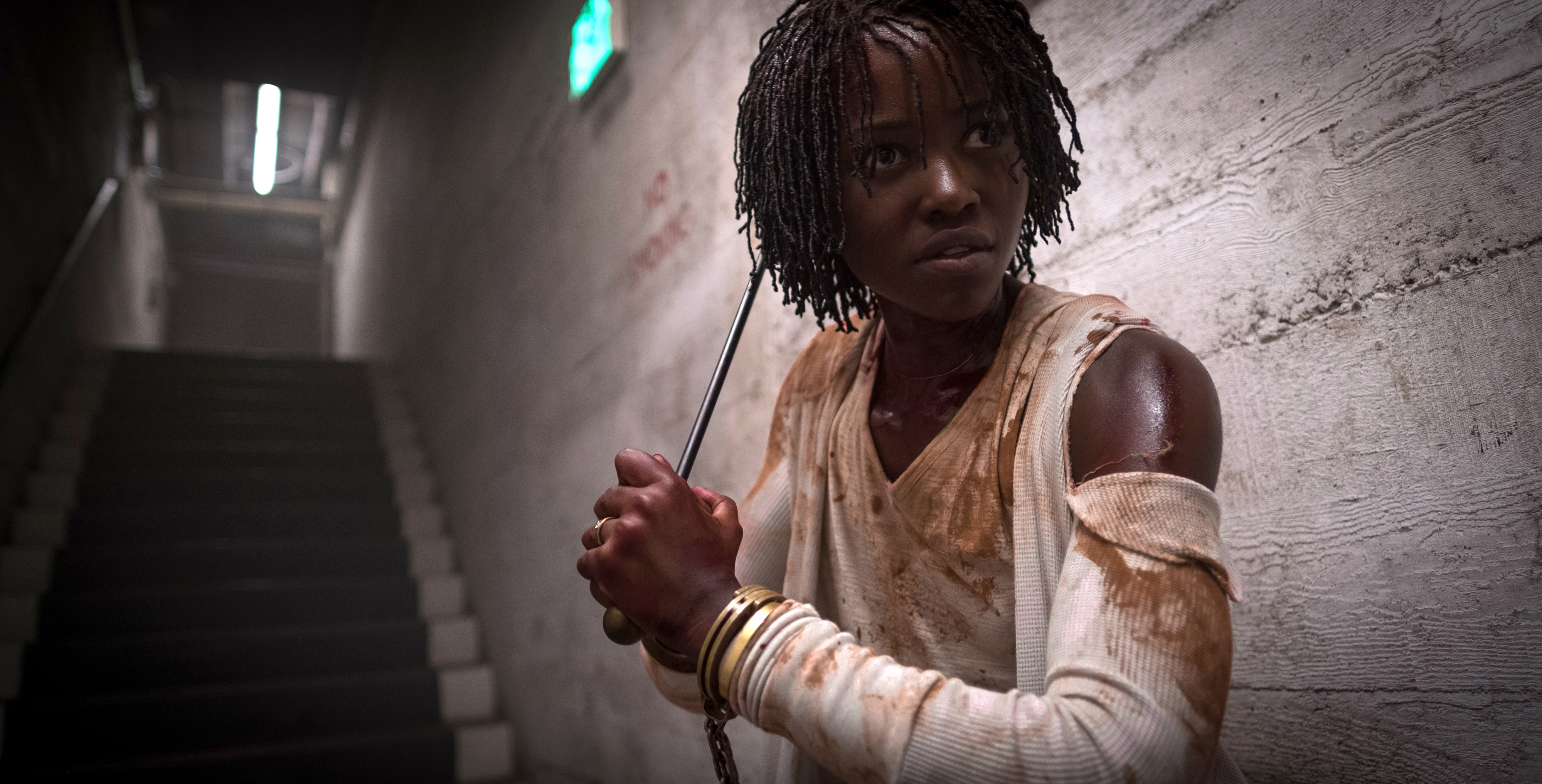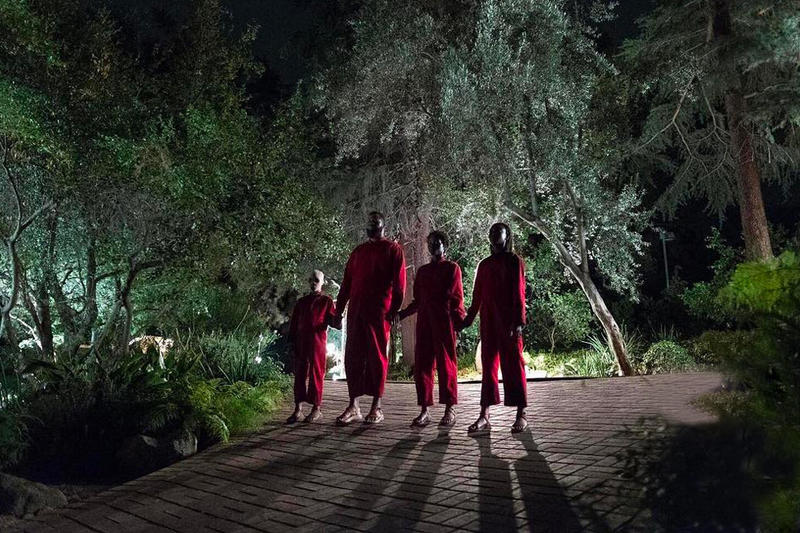Something wicked this way comes in Jordan Peele’s new high-concept horror film; the answer—and the title—is Us. In his sophomore stab at the genre, the filmmaker trades the waspy East Coast enclave of his breakout debut Get Out for the sunny shores of Santa Cruz, where would-be vacationers, the Wilson family, confront a foursome of homicidal home invaders who happen to look a lot like themselves.
Like Ray Bradbury’s quintessential carnival novel, Us opens with an approaching thunderstorm. The year is 1986 and the hottest prize on the midway is a Michael Jackson “Thriller” t-shirt (eek!). Donning her new duds, young Adelaide (newcomer Madison Curry) slips away from her parents and into a chintzy funhouse where she accidentally unleashes a force both frightening and familiar. The trauma of this encounter follows Adelaide into adulthood. Now a mother (and now played by Academy Award winner Lupita Nyong’o), she returns to Santa Cruz to face childhood fears that have laid dormant for more than 30 years.

Baked into the heady premise is the potential for serious psychological self-conflict, but Us delivers disappointingly literal answers to its most intriguing questions. And unlike Get Out, which jealously guards its mystery until the climactic final act, Us unravels early and struggles to recover. At nearly two hours, the film runs a touch too long and the last-minute twist doesn’t quite land. Still, Peele’s pop-horror sensibilities shine throughout, with gleeful gags and gore in equal measure. Just don’t expect to find a whole lot more beneath the surface.
Neither is the movie’s many influences deeply buried. A choice collection of VHS tapes is displayed prominently beside a television early in the film, namechecking titles like C.H.U.D., The Goonies, and A Nightmare on Elm Street. Peele borrows liberally from these works and others—and don’t be surprised to catch a clunky cliché or two. Can we get a mortarium on ominous crayon drawings and homeless men holding eerily relevant cardboard bible-verse signs?
Somewhat mitigating the underlying weakness of the script are the committed performances of the film’s strong cast, which includes Winston Duke, Elizabeth Moss, and Tim Heidecker. Each player is essentially performing dual roles and all dive in with gusto. Nyong’o is especially impressive, bouncing between the roles of a tormented mother and her seemingly soulless aggressor, an empty vessel with dead eyes and a hollow croak of a voice. “Who are you?” Adelaide hazards after their first chilling encounter. “We’re Americans,” comes the enigmatic whisper of a response. It’s an effective moment—one of too few in the film—where Peele resists the impulse to overexplain.

Us is a letdown, but it still brings more to the table than your average Conjuring spinoff or Saw sequel. For Peele, a comedian, the horror genre is a funhouse mirror. He repurposes familiar tropes to reflect a grotesque, perverted image of reality while revealing an underlying, perhaps overlooked truth. This is the power of symbolic storytelling, which Peele wields with passion and purpose. It’s a talent that hasn’t gone unnoticed—the director was recently tapped to helm TV’s Twilight Zone reboot—a perfect fit for his particular blend of social commentary and the supernatural. The short format may also prove a screenwriting boon, perhaps pushing Peele to weave more tightly focused tales whose only boundaries are that of the imagination. And that’s a quality he has in spades.